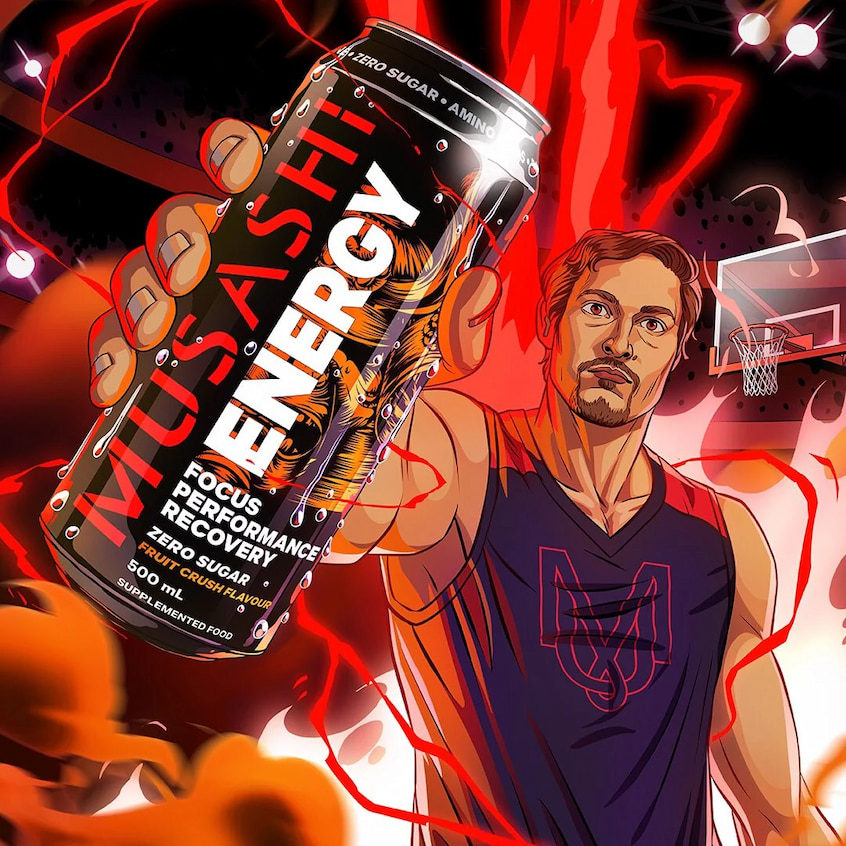
Power Up Right: Why Ingredients and Timing Matter for Your Workout Energy Drink
Pushing through an intense workout can be tough. However, the right energy boost can make all the difference. A well-chosen energy drink can be just what you need to stay on track during a long and intense workout, especially when you feel sluggish, weak, or demotivated.
Whether you need a quick pick-me-up before hitting the gym or an extra push to power through the final reps, the right energy drink can help fuel your body, enhance focus, and keep you performing at your best.
Contents
Ingredients Matter
Not all energy drinks are formulated the same. Some are loaded with sugar others may use synthetic caffeine, artificial colors, preservatives, or emulsifiers that cause digestive discomfort or allergic reactions. Therefore, you want to read the label carefully and choose an energy drink that meets your health and fitness goals.
Caffeine is one of the most common ingredients in energy drinks. It acts as a stimulant, giving you the extra jolt before your training session and helping you work out longer. Caffeine can also help you wake up properly, especially if you’re going to work out in the morning.
If you’re sensitive to stimulants, consider options with little to no caffeine. These often include other ingredients like B vitamins, adaptogens, amino acids, and electrolytes rather than caffeine to provide the much-needed energy boost.
Another thing you might want to avoid in your power beverage is excessive added sugars. That’s because they can cause rapid spikes in blood sugar. However, this quick boost is short-lived and it’s often followed by crashes.
Moreover, taking energy drinks packed with added sugars can lead to a host of health problems, from heart diseases to dental issues. Instead, you want to maintain consistent energy levels with drinks containing little or no added sugars. These options don’t cause sudden blood sugar spikes and crashes, preventing fatigue or sluggishness during exercise.
Also, energy drinks that contain artificial sweeteners and unnatural flavourings may not be ideal for athletes with food allergies, intolerances or sensitive stomachs. Instead, athletes with sensitivities should look for naturally sweetened energy drinks with fewer additives and no unnecessary chemicals.
But cleaner energy drinks are not just for athletes with sensitivities. Choosing a cleaner option can be beneficial if you want to avoid artificial additives, prefer natural ingredients, or simply want a more balanced energy boost without crashes.
Timing Matters

Apart from ingredients, timing also matters when taking a sports drink to boost your workout. Being mindful about when and how often you take this stimulant beverage can maximise its benefits while avoiding crashes, jitters, or sleep disruption.
Ideally, 30-45 minutes before a workout is the perfect time. This allows enough time for the caffeine and other performance-enhancing ingredients like B vitamins, amino acids, and electrolytes to take effect in order to boost your endurance and focus.
If you’re engaging in long exercise sessions, taking an energy drink in the middle can help sustain your performance, especially if it includes electrolytes, amino acids, and carbohydrates for replenishment.
After 45 minutes to an hour of exercise, your muscles have been working hard, and your body’s glycogen (energy) stores may start to decline. At this point, you start feeling fatigued or dehydrated. Taking a mid-workout energy drink can help you power through the workout.
But it’s not just the perfect timing that matters. Being mindful about how you consume it can help you get the most out of your energy drink. Instead of consuming the drink all at once, take it in smaller sips to keep hydration levels consistent and prevent energy crashes.
While energy drinks can be beneficial when taken before or during a workout, there are situations where they should be avoided to prevent negative side effects like jitters, crashes, or sleep disturbances.
Did you know that caffeine can stay in your system for 5-6 hours? Therefore energy drinks that contain caffeine and other stimulants should be avoided at least 6 hours before bedtime to ensure restful sleep.
Also, energy drinks should not be taken first thing in the morning on an empty stomach. Doing so can cause stomach irritation, rapid blood sugar spikes, and crashes. Instead, you want to pair your energy drink with a light meal or snack that contains protein and healthy fats.
Finally, energy drinks should not be taken if you’re already dehydrated. That’s because most of the options that can be found on the market are formulated with high caffeine content and can act as a diuretic. This leads to increased urination and further dehydration.
Instead, after sweating a lot and you’re already dehydrated opt for a hydration-focused drink with electrolytes. For instance, coconut water is naturally packed with potassium and is a great alternative to sugary sports drinks. Watermelon juice is another great option. It’s rich in electrolytes and antioxidants, helping to restore your hydration levels naturally.


Sorry, the comment form is closed at this time.